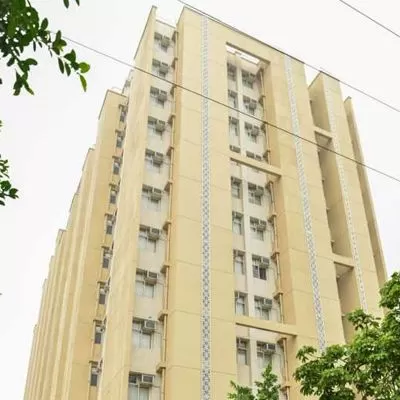Schedule a Call Back
Covid-19 economy: How long would the dislocations last?
2020-05-01
 The Covid-19 pandemic is in its second month in India, but the reverberations will last this entire year, such are the travails of uncertainty around a virus whose trajectory remains shrouded in mystery.
<p></p>
<p>So far the economic damage has been cathartic. In the first serious month of lockdown, the economic output has collapsed by such an amount that many economists see India to end up with less than 2 per cent growth for the full year, which however could be a very optimistic projection for the moment. </p>
<p>There are four major dislocations we see, the dislocation of labour being the primary one and we know that migrant labour is the backbone of all seasonal, temporary and even permanent labour starting from agriculture to medium and large industry segments; the lockdown had an unprecedented reverse movement of people as many lost livelihoods in their places of work and had no other option but to return to their homeland. The impact of this dislocation will be the most longstanding one and this could mean that many construction sites could see delays in execution even though the basic conditions could improve as far as the virus is concerned. This puzzle cannot get solved on its own as the price at which supply of labor has to clear the market, it would need incentives to attract these flows; information will also hold the key..</p>
<p>The second dislocation is arguably most critical as in supply chains and logistics, as international borders remained virtually closed during the lockdown, while even state borders remained difficult to be crossed; some states are struggling with even district borders. The global trade has come to a grinding halt, which means that the costs of transportation, while the oil has reached its nadir, the congestion costs once factored, the overall cost will constantly see an upward pressure. The dislocations inside the country includes the proverbial puzzle, drivers and vehicles have to move through a mismatch that they are drawn away from the centers where the next demand is likely to take shape. .</p>
<p>The third dislocation is that of financing the jump-starting of the economy itself, when budgeted allocation of all funds would need a careful scrutiny and the shifts would be very painful. The primary health infrastructure would take in the bulk of the funds away from the income generating projects unless there is a common sacrifice that every citizen has to make. Public funding of primary health and insurance will see massive dislocations. The stimulus however, no matter how powerful it is, needs to reach the intended recipients, this is where we cannot falter. Fiscal loosening is the only solution and the government has rightly focused on MNREGA where job creation is the most important constituent. .</p>
<p>The fourth dislocation will be the re-pricing of assets that will go through the trough and it might take a while to get back to where it was before the Covid-19 struck. This is an important aspect as it has many multiplicative effects in the economy; the financial sector will remain heavily focused to see that the transmission channels remain lubricated, whether from the reduction in the prime lending rate or from the change in the reverse ripo rate, every opportunity for increased lending must reach the right participants in need of such lending. Increased economic activity is the only solution to this puzzle and as long as the confidence of the participants are brought back, there is nothing to worry..</p>
<p>But that simply said means that India must show the resolve to run the economy by creating the right incentives for work and the government must step in where the markets have ceased to function. It will remain an arduous and long task..</p>
<p> <span style="font-weight: bold; font-style: italic;">ABOUT THE AUTHOR:</span><span style="font-weight: bold;"><br />
Procyon Mukherjee</span> works as Chief Procurement Officer at LafargeHolcim India. The ideas presented are his personal and have no connection to the beliefs of the company where he works..</p>
The Covid-19 pandemic is in its second month in India, but the reverberations will last this entire year, such are the travails of uncertainty around a virus whose trajectory remains shrouded in mystery.
<p></p>
<p>So far the economic damage has been cathartic. In the first serious month of lockdown, the economic output has collapsed by such an amount that many economists see India to end up with less than 2 per cent growth for the full year, which however could be a very optimistic projection for the moment. </p>
<p>There are four major dislocations we see, the dislocation of labour being the primary one and we know that migrant labour is the backbone of all seasonal, temporary and even permanent labour starting from agriculture to medium and large industry segments; the lockdown had an unprecedented reverse movement of people as many lost livelihoods in their places of work and had no other option but to return to their homeland. The impact of this dislocation will be the most longstanding one and this could mean that many construction sites could see delays in execution even though the basic conditions could improve as far as the virus is concerned. This puzzle cannot get solved on its own as the price at which supply of labor has to clear the market, it would need incentives to attract these flows; information will also hold the key..</p>
<p>The second dislocation is arguably most critical as in supply chains and logistics, as international borders remained virtually closed during the lockdown, while even state borders remained difficult to be crossed; some states are struggling with even district borders. The global trade has come to a grinding halt, which means that the costs of transportation, while the oil has reached its nadir, the congestion costs once factored, the overall cost will constantly see an upward pressure. The dislocations inside the country includes the proverbial puzzle, drivers and vehicles have to move through a mismatch that they are drawn away from the centers where the next demand is likely to take shape. .</p>
<p>The third dislocation is that of financing the jump-starting of the economy itself, when budgeted allocation of all funds would need a careful scrutiny and the shifts would be very painful. The primary health infrastructure would take in the bulk of the funds away from the income generating projects unless there is a common sacrifice that every citizen has to make. Public funding of primary health and insurance will see massive dislocations. The stimulus however, no matter how powerful it is, needs to reach the intended recipients, this is where we cannot falter. Fiscal loosening is the only solution and the government has rightly focused on MNREGA where job creation is the most important constituent. .</p>
<p>The fourth dislocation will be the re-pricing of assets that will go through the trough and it might take a while to get back to where it was before the Covid-19 struck. This is an important aspect as it has many multiplicative effects in the economy; the financial sector will remain heavily focused to see that the transmission channels remain lubricated, whether from the reduction in the prime lending rate or from the change in the reverse ripo rate, every opportunity for increased lending must reach the right participants in need of such lending. Increased economic activity is the only solution to this puzzle and as long as the confidence of the participants are brought back, there is nothing to worry..</p>
<p>But that simply said means that India must show the resolve to run the economy by creating the right incentives for work and the government must step in where the markets have ceased to function. It will remain an arduous and long task..</p>
<p> <span style="font-weight: bold; font-style: italic;">ABOUT THE AUTHOR:</span><span style="font-weight: bold;"><br />
Procyon Mukherjee</span> works as Chief Procurement Officer at LafargeHolcim India. The ideas presented are his personal and have no connection to the beliefs of the company where he works..</p>


Subscribe Now
Subscribe to our Newsletter & Stay updated
RECENT POSTS
Popular Tags
Folliow us











